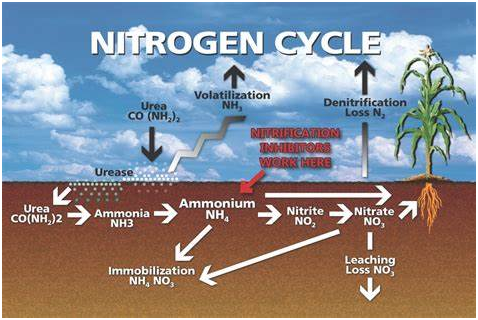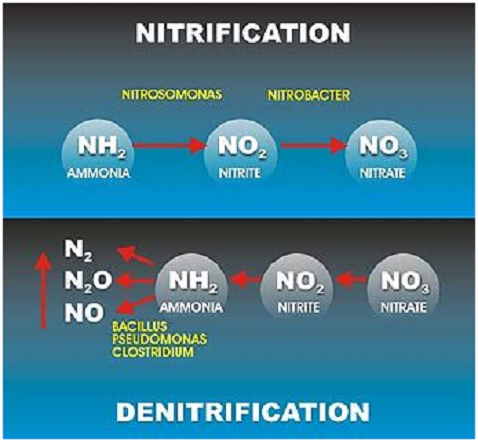
Exhibition time: 17-19 March, 2026 Shanghai, China
 中文
中文

Exhibition time: 17-19 March, 2026 Shanghai, China
 中文
中文
What is nitrification?
Nitrification is a mineral process, whereby bacteria convert ammonium (NH4+) into nitrate (NO3-). This process takes a few days to weeks, depending on the soil condition, including soil temperature. During the process, whereby ammonium is converted into nitrate the hydrogen atoms (H+) are split away from the ammonium, and these hydrogen atoms cause acidification of the soil. The most important nitrifying bacteria are Nitrosomonas and Nitrobacter.

What is nitrate leaching?
Nitrogen leaching is also known as nitrate leaching. Nitrate binds to soil particles and is therefore mobile in the earth. When there is excessive precipitation nitric nitrogen leaches down to lower levels in the soil and could be lost for the crop. By applying (nitrate-containing) fertilizers or animal manure early in the spring there is the greatest chance of leaching.

How does a nitrification inhibitor work?
A nitrification inhibitor inactivates the bacteria responsible for nitrification. The nitrification inhibitor ensures that ammoniacal nitrogen is gradually converted into nitric nitrogen. With a nitrification inhibitor the precious nitrogen from slurry of mineral fertilizer stays in the soil for longer and becomes available as nitric nitrogen at the time the crop needs the nitrogen. Consequently, the crop can convert the available nitrogen into higher yields in the best way possible.
